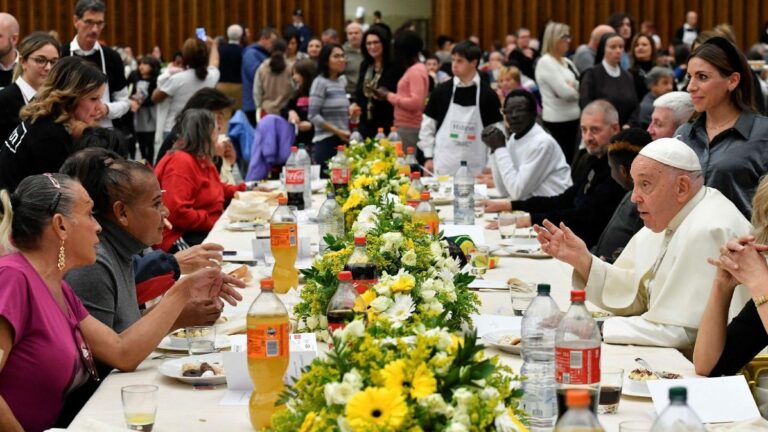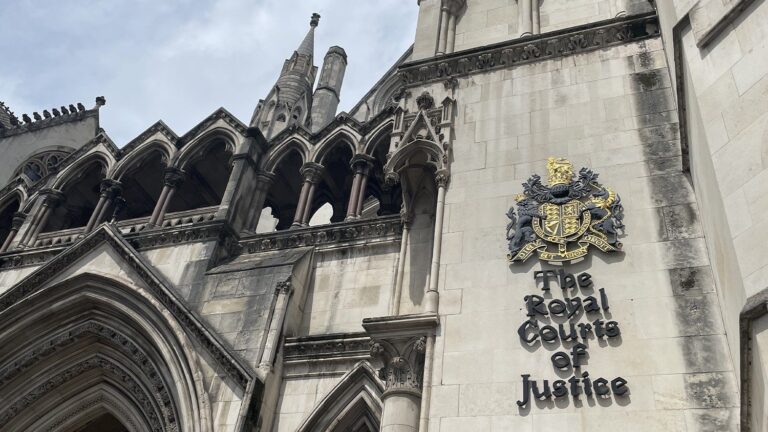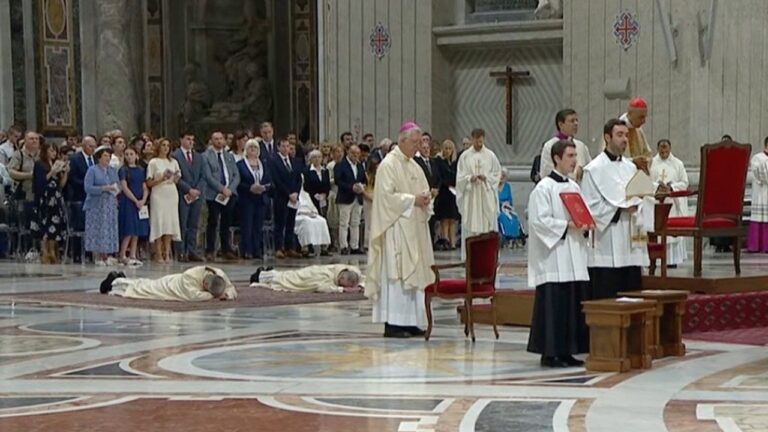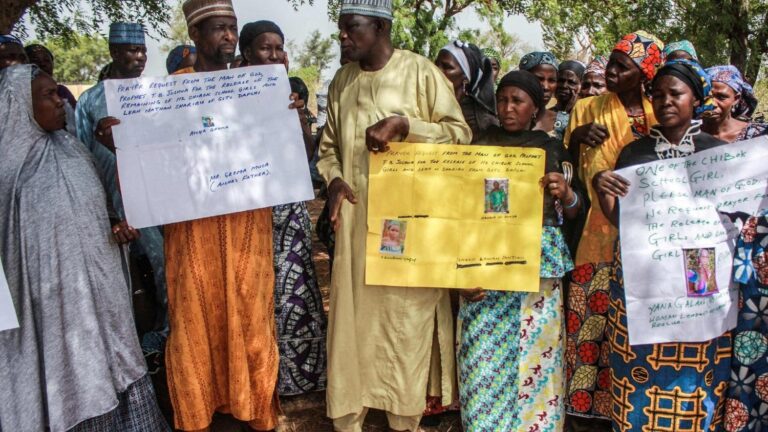Archbishop Gallagher appeals for freedom of religion and conscience
Archbishop Paul Richard Gallagher, Secretary of the Holy See for Relations with States and International Organizations, addresses the Conference of the Senate of the Republic of Poland on “Freedom of Conscience and Religion in the Context of a Democratic State” and, following calls from recent Popes and Pope Francis, calls for strengthening and encouraging these freedoms.
By Deborah Castellano Lubov
Msgr. Paul Richard Gallagher, Secretary of the Holy See for Relations with States and International Organizations, has launched an urgent appeal for respect for religious freedom, an element that is increasingly threatened in today’s world and in society as a whole.
The Vatican diplomat’s remarks were made on Tuesday at the conference entitled “Freedom of conscience and religion in the context of a democratic state” at the Senate of the Republic of Poland.
Specifically, Archbishop Gallagher spoke of the theme “Freedom of conscience and religion in the context of the social teaching of the Church”.
It is necessary to effectively guarantee in practice
Over the past sixty years, the Catholic Church, he stressed, “has reflected deeply on the theme of human rights in general, and freedom of conscience and religion in particular.” This reflection, he observed, has been enriched by the daily experiences of believers from all regions and social classes.
In this light, the Archbishop proposed some concrete considerations on the current state of this fundamental freedom, “so that it may be effectively ensured in practice” and “not only proclaimed in words or simply consecrated by law.”
He first looked at the framework of religious freedom presented in the Statement Dignitatis Humanae promulgated by Pope Saint Paul VI in 1965.
Framework of Religious Freedom in the Declaration Dignitatis Humanae
The aforementioned conciliar text, Archbishop Gallagher noted, “makes it clear that the basis for the recognition and protection of the right to freedom of religion is the dignity of the human person.”
“Our human dignity demands internally and irresistibly that we act according to the imperatives of our conscience,” he said.
“In this perspective,” he said, “freedom of religion is expressed as the most profound manifestation of freedom of conscience.”
Archbishop Gallagher then stressed that the fact that religious freedom is rooted in our universal human dignity “allows us to affirm that it is not a subjective reality nor something that is simply granted by the state to its citizens.”
Starting from this principle, continued the diplomat of the Holy See, “everyone must be free to adhere to that religious vision or that metaphysical reality that he has discovered as bearing an authentic meaning, to the point of being a compass for his fundamental dispositions and behavior.”
Need for respect
The archbishop stressed the need for mutual respect and the human right to enter into a direct relationship with God, “without any form of coercion from external forces.”
In other words, he insisted, “it is the right of every human being to freely demonstrate and live out his or her religious convictions before any social authority, without any limitations other than those necessary to maintain just public order.”
Details on Dignitatis Humanae
Quote Dignitatis Humanae, Archbishop Gallagher said the issue of religious freedom is not “limited to the individual alone but involves the whole community and, in a particular way, the family.”
“Here,” he stressed, “we recall the need to exercise this freedom in the transmission of religious values through education and teaching” provided by parents to their children.
The Archbishop then discussed religious freedom in the post-conciliar magisterium.
Freedom of religion in the post-conciliar magisterium
He said it is important to understand the contribution of Pope Paul VI to Dignitatis Humanae in the light of two historical factors, namely his important trip to the United Nations in October 1965, and the first contacts of the Holy See with the regimes beyond the Iron Curtain, “which aimed to improve in some way the living conditions of Christians and of all populations living under the communist dictatorship.”
In this perspective, the Declaration on Religious Freedom, he noted, “would have been a useful tool to insist on respect for this fundamental right in countries under state atheism, including Poland.”
It is no coincidence, he observed, that the 30thth Birthday of Dignitatis HumanaeSt. John Paul II called it “one of the most innovative texts of the Council.” The late Pope, the Vatican diplomat recalled, considered the document “in a sense a response to a situation that has often occurred in the history of the Church and has not completely disappeared from the contemporary world,” namely the multiple “forms of religious and ethnic hatred.”
At the same time, he added, John Paul II warned against “another form of limitation of religious freedom, more subtle than open persecution,” referring to the insidious “affirmation that a democratic society should relegate to the realm of private opinion the religious beliefs of its members and the moral convictions that flow from faith.”
“Essential element of a rule of law”
“With the precision that characterizes his thinking, Pope Benedict XVI echoed these considerations,” Archbishop Gallagher continued. In his message for the 2011 World Day of Peace, Archbishop Gallagher recalled, Benedict XVI had described religious freedom as “an essential element of a rule of law,” stating that it “cannot be denied without at the same time encroaching on all fundamental rights and freedoms, for it is their synthesis and keystone.”
“Whenever religious freedom is denied and attempts are made to prevent people from professing their religion or faith and living accordingly,” he said, “human dignity is offended, which constitutes a threat to justice and peace.”
Religious freedom, “a precious gift from God”
“Following in the footsteps of his predecessors, Pope Francis reaffirms that religious freedom constitutes “a precious gift of God for all, a fundamental guarantee of every other expression of freedom. It is a defense against totalitarianism and a decisive contribution to human fraternity.”
Pope Francis indicates “two attitudes that can be particularly useful to advance this fundamental freedom. The first attitude is that of considering every man and every woman (…) not as rivals, much less as enemies, but as brothers and sisters. (…)”
The second attitude, on the other hand, he added, “favors the promotion of religious freedom, he said, it is the work done in the service of the common good.”
Freedom of religion and secularism of the State
Turning our gaze to the current reality, the archbishop described as “discouraging” the fact that “freedom of religion is often talked about rather than put into practice.”
The Vatican official recalled Pope Francis’ insistence that there are “new and decisive challenges” facing Europe’s churches today.
One such challenge, Archbishop Gallagher noted, is “posed by legislators who, in the name of a misinterpreted principle of tolerance, end up preventing citizens from freely expressing and practicing their own religious beliefs in a peaceful and legitimate manner.”
When civil authorities exceed their powers
Unfortunately, he lamented, “it is not uncommon for civil authorities to deny or limit any form of religious propagation or promotion, under the guise of maintaining neutrality, secularism or the separation of Church and State.”
“In this way,” he warns, “we completely forget that these same sacrosanct principles were established to guarantee freedom of religion for all!
He admitted that “of course, it is sometimes necessary to impose practical limits on certain harmful expressions of religious freedom, but,” he said, “this is precisely for the purpose of ensuring that the same freedom is guaranteed to others.”
On the contrary, he said, “when the positivist principles of the State are placed before fundamental human rights, the application of these principles can become arbitrary.”
Clarity of Benedict XVI
It is wrong, he added, to think that a “secular state” should neutralize religiosity or marginalize public expressions of religion. “In this regard,” he said, “Pope Benedict XVI has been clear in his rejection, on the one hand, of religious fundamentalism and, on the other, of an unhealthy secularism.”
In fact, he stressed that “religious fundamentalism and secularism are similar in that both represent extreme forms of rejection of legitimate pluralism and the principle of secularism.”
In this regard, he suggested, “at the heart of any legal order there is always a conception of humanity and society, of good, evil and justice, which are often intertwined with a religion: life in society is not neutral!” A secular state, he suggested, should be able to “recognize the historical, cultural and sociological relevance that religious traditions have had, in order to appreciate “the ethical contribution of religion in the political sphere.”
Never be marginalized or banned
In this regard, he stressed, “religion should not be marginalized or banned, but considered as an effective contribution to the promotion of the common good.”
“As Pope St. John Paul II reminded us twenty years ago, in a pluralistic society, secularism – when properly understood as the legitimate separation between politics and religions – is a place of communication between different spiritual traditions and the nation,” said Archbishop Gallagher.
This is why, he recalled, Pope John Paul II stressed that “relations between Church and State can and must lead to a respectful dialogue, bringing fruitful experiences and values for the future of a nation.”
“There is no doubt,” the archbishop said, quoting the late Polish pope, “that a healthy dialogue between the State and the Churches – which are not rivals but partners – can foster the integral development of the human person and harmony in society.”






